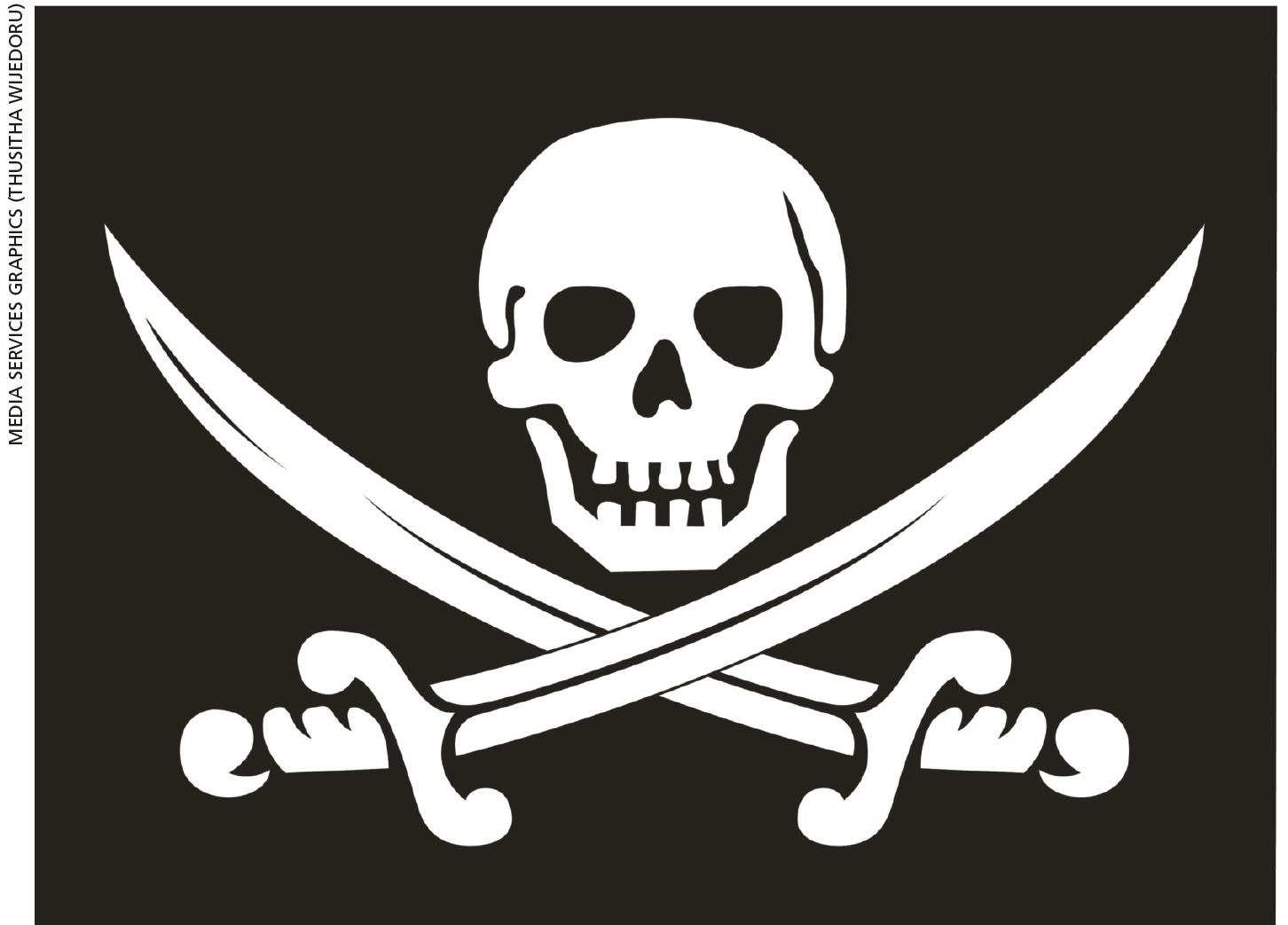VACCINE GRAB

FIGHT COLONIAL PIRACY
BY Priyan Rajapaksa
Truth be told, I’m not openly rebellious. In fact, I don’t consider myself to be a rebel at all. However, I do often simply ignore some of the irksome rules of society that (shall we say) disadvantage me in the pursuit of my mainly lawful activities.
 But as the Good Book says: “There is a time for everything … a time for war and a time for peace.” And denying COVID-19 vaccines to poor countries is indeed a time for war.
But as the Good Book says: “There is a time for everything … a time for war and a time for peace.” And denying COVID-19 vaccines to poor countries is indeed a time for war.
So let’s follow the virtuous countries and grab patents for the vaccine, shall we?
Although settled in what’s recognised as a Western country today, the impact of growing up in postcolonial South Asia has never left my mind. All systems were stacked against South Asians and the discrimination still continues.
Poor nations are being held hostage by richer countries in our struggle to gain access to vaccines.
It’s not a battle for food, water or outerwear. We are used to doing without essentials but this is a battle for life itself. We have witnessed the robbery of our clothes; but when the robbers try to yank off our underwear, we need to stand up since brown lives matter not.
The time is now, for South Asians to ignore the often touted ‘rules-based world order’ that favours the OECD.
In the present context, the issue revolves around the denial of vaccines and my suggestion is to get the patents by hook or by crook and consider producing them ourselves. Patenting is legal fiction kicked off with the Statute of Monopolies passed in 1624 by the Parliament of England.
It should have applied only to the UK but the British government took over the affairs of the East India Trading Company in 1707, and handed the latter a licence to pillage South Asia and Qing China.
Amid this skullduggery, they brought tea seeds from China along with planting and cultivating methods to launch an industry in India. They offered land in Assam to any European who agreed to cultivate tea for export and break the monopoly of the crop grown in China. That was Indian land taken by right of conquest but it would have been done legally and ratified by parliament – so very proper British humbuggery!
Not satisfied with stealing tea, they stole rubber plants from Brazil. The British have a quaint habit of awarding knighthoods to international pirates and crooks such as Sir Francis Drake.
The rubber seed crook is described in Wikipedia thus: “Sir Henry Alexander Wickham (1846-1928) was a British explorer and plant thief. He was the first person to successfully export a large viable shipment of Brazilian rubber seeds to the British Empire. He did so under false pretences.”
“The British had long planned to create rubber plantations in Southeast Asia, and using Wickham’s batch, the resulting plantations brought about the end of the Amazon rubber boom,” it adds.
This was a planned robbery and the detailed account of the smuggling reads like a plot from a James Bond movie. Wickham didn’t take a few seeds in his pocket; he stole 70,000 of them and had a British warship anchored outside Brazilian territorial waters to whisk them back to Kew Gardens.
There are many more incidents and the list seems endless. Sir Jamsetjee Jejeebhoy, 1st Baronet Jejeebhoy of Bombay – CMG (15 July 1783 – 14 April 1859) was a Parsi-Indian merchant and philanthropist. He amassed a huge fortune in cotton and the opium trade on behalf of the British with China.
If El Chapo had been British, the citation would have read: “Arise, Sir El Chapo Guzman! I dub thee an honourable member of the Royal Society of Smugglers and grant you the right to distribute drugs.”
Having lived (and still living) in a former British colony, I find that this doublespeak is normal.
What riled me the most was the more recent attempt by the American company Monsanto to patent basmati rice. When the US originally granted the patent, it touched a nerve on the subcontinent and that led to a challenge by the Indian government.
It became a touchstone for an anti-globalisation protest against a piracy of emerging nations’ indigenous products. The issue was settled by the US granting a narrower patent to RiceTec of Alvin – Texas.
As we’ve seen since colonisation began, these are cheap crooks. They will steal one’s underwear from the line and sell it. But on the other hand, when they preach human rights, democracy and the rule of law, their haloes eclipse the sun.
Taking a cue from Queen Elizabeth I, let’s keep it legal and issue a Sri Lankan charter. Then Sri Lankan privateers protected by legal documents can raid a few offices in the UK and the US, and copy the formulae!
From then on it should be easy. Extreme situations need extreme solutions. Instead of going through the stages of manufacturing and so on, let’s grab some patents and expand the pharmaceutical industry.
Slaves of the world unite – you have nothing to lose but your lives. Heave ho, me hearties, a pirating we go!




Leave a comment